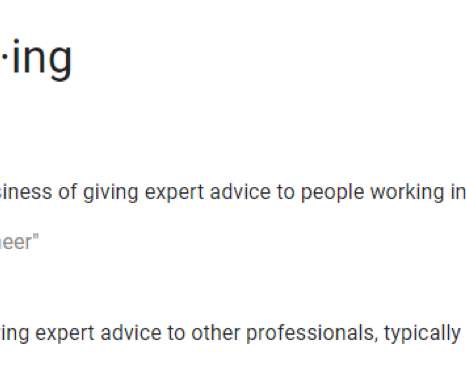What is consulting?
Tom Spencer
FEBRUARY 1, 2020
Seeing as operations is often associated with the strategy and technology side of a company, active operations consultants regularly work side by side with experts from these domains. IT Consultants: Technology consultants, focus on helping clients with the development and application of Information Technology (IT) within their organization.
















Let's personalize your content